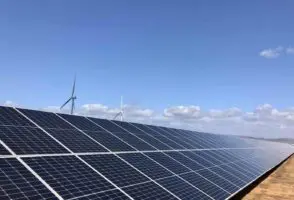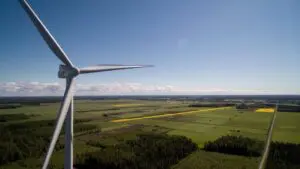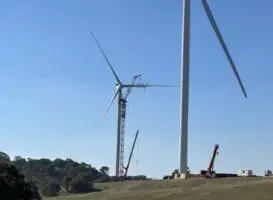Social media giant Facebook has continued efforts to become powered 100% by renewables by the end of 2020, with a new suite of wind and solar purchases, including a partnership to develop a new wind farm in County Tipperary, Ireland, as well as four purchases across the United States.
Facebook says it will help develop the 28.8MW Lisheen III wind farm in Ireland’s County Tipperary, which will power the company’s expanding data centre campus in County Meath, as well as its European headquarters situated in Dublin.
The partnership was made with Canada-based global fund Brookfield Renewable Partners which already owns wind farms in Tipperary generating power for Facebook’s operations.
The new Lisheen III wind farm will be built alongside the smaller Lisheen I and II, and will generate enough electricity equivalent for the annual needs of 20,000 homes.
“We appreciate this strong collaboration with Brookfield Renewable and are excited to be a part of bringing this new wind project to the grid,” said Colin Spain, Facebook’s energy manager for EMEA.
“We hope that it will not only support our Irish operations and our goal of 100% renewable energy for all of our global operations, but will encourage all stakeholders to work together to bring additional renewables to the grid through corporate agreements from purchase of energy.”
Facebook also announced four new solar and wind projects in the United States, in the states of Illinois, Ohio, Tennessee, and Utah, which together will provide nearly 800MW of power for Facebook’s US operations.
While the specifics of these US-based renewable energy purchases are as yet unclear, they fall in line with the company’s larger plans to power its global operations with 100% renewable energy.
Currently, Facebook has deals worth more than 5GW – including 2GW of operational renewable energy. Facebook also expects a further 1.5GW of wind and solar power to come online by the end of the year.
However, while these commitments are impressive, they don’t come anywhere close to actually seeing the company powered 100% by renewables by the end of 2020 – as the company promised back in 2018. Facebook committed to “reducing our greenhouse gas emissions by 75% and powering our global operations with 100% renewable energy by the end of 2020,” and enthusiastically highlighted its existing renewable energy purchases.
As has been the company’s trend, though, action has not met its commitments, and it would seem that Facebook may exit 2020 with only commitments for 100% renewable energy, rather than the promised 100% renewable energy power.










